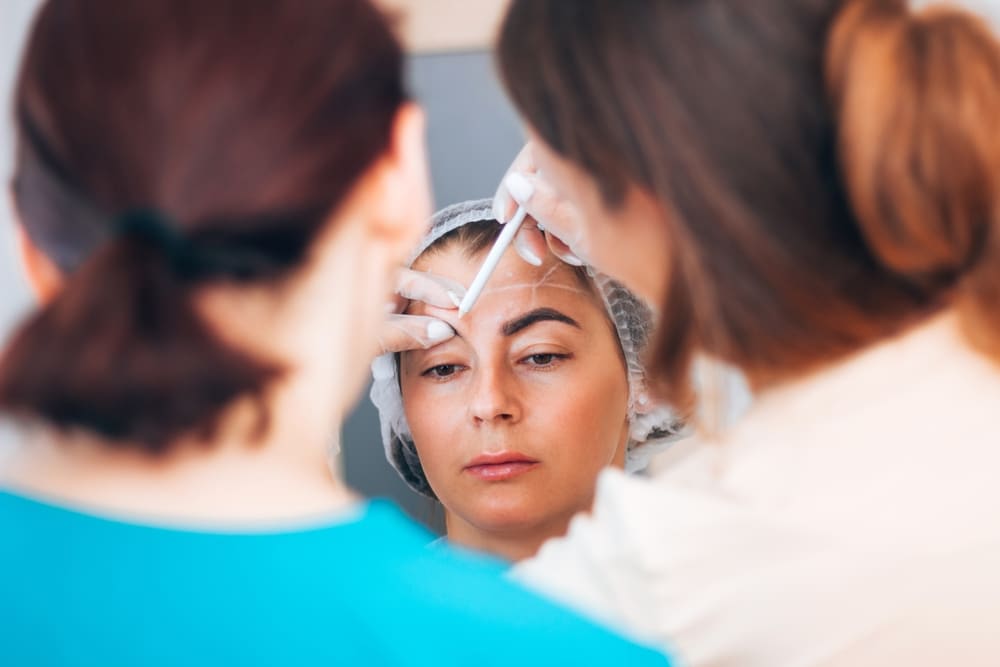In recent years, med spas have become increasingly popular, offering a wide range of cosmetic procedures and treatments. From Botox injections to laser hair removal, these establishments promise to help clients achieve a more youthful appearance and boost their confidence. However, with the rapid growth of the industry, there has been a concerning rise in non-compliance with regulations and licensing requirements. This poses significant risks to both med spa owners and the patients they serve. Below we explore the consequences of non-compliance in the med spa industry and emphasize the importance of adhering to legal and ethical standards.
Understanding the Medical Nature of Med Spa Services
To fully comprehend the compliance issues faced by med spas, it is crucial to recognize that many of the services they provide are considered medical procedures. According to the Texas Medical Board, treatments such as Botox injections, dermal fillers, laser hair removal, and chemical peels fall under the category of “nonsurgical medical cosmetic procedures.” This means that before any of these procedures can be performed, a good faith examination by a physician or midlevel provider is required. They must establish a medically appropriate treatment plan and document it in the patient’s medical record.
The Role of Physician Supervision and Ownership
One of the primary compliance issues for med spas lies in the lack of proper oversight and ownership. Medical practices are limited to specific entity types, such as professional associations, professional limited liability companies, or general partnerships with licensed physicians. However, many med spas are incorrectly formed as corporations or regular limited liability companies. This not only leads to improper ownership but also creates a legal and regulatory loophole.
In addition to proper formation, med spas must ensure that they are owned by individuals licensed to practice medicine in the state. Texas, like many other states, follows the “Corporate Practice of Medicine” principle, which prohibits non-physicians from owning medical entities. These regulations extend to midlevel providers as well, with physician assistants only being able to co-own a medical practice if the physician maintains a majority interest. Nurse practitioners, on the other hand, are not permitted to own any percentage of medical practice.
Compliance Challenges and Consequences
Non-compliant med spas face significant legal and financial consequences. Med spa owners can be held liable for the unauthorized practice of medicine, resulting in civil and criminal penalties. Physicians associated with these establishments may also face disciplinary action from the state medical board, jeopardizing their medical licenses. The consequences extend to patients as well, as they may unknowingly receive treatments from unqualified and unlicensed individuals, putting their health and safety at risk.
The Texas Medical Board has seen a surge in complaints related to non-compliant med spas. If a med spa has a medical director, the board can discipline the physician for inappropriate supervision or unprofessional conduct. In extreme cases, the board can shut down the business, and the unlicensed med spa owner may even face criminal charges for practicing medicine without a license. Furthermore, if a patient experiences physical or psychological harm, the owner could be charged with a third-degree felony.
The Business and Legal Side of Med Spas
In addition to medical regulations, med spas must also comply with other business and legal requirements. These include in-office and website disclosure requirements, registration requirements, reporting obligations, and restrictions on marketing and advertising practices. Failure to adhere to these rules can lead to further legal and financial consequences.
It is important to note that the med spa industry is experiencing rapid growth, attracting entrepreneurs seeking to capitalize on its popularity. However, with the potential for substantial financial gain also comes great responsibility. Entrepreneurs venturing into the med spa industry must prioritize setting up their establishments correctly, ensuring proper supervision, and complying with all relevant laws and regulations.
Safety Concerns in the Med Spa Industry
The lack of proper compliance in the med spa industry raises significant safety concerns. Procedures such as laser hair removal and injectables require specialized training and expertise to minimize the risk of complications. In cases where med spa employees are not appropriately licensed or trained, patients may suffer from adverse effects, such as burns, scarring, or discolored skin. This highlights the importance of seeking med spas that are supervised by qualified physicians and staffed with licensed professionals.
The Need for Clear Regulations and Oversight
The regulatory landscape for med spas can be complex and often varies from state to state. While some states have clearly defined regulations regarding the supervision and licensing requirements for med spa procedures, others have more ambiguous guidelines. This inconsistency creates challenges for med spa owners, as they may struggle to navigate the legal requirements and ensure compliance.
To address these concerns, regulatory bodies and industry organizations should work together to establish clear and comprehensive regulations for the med spa industry. This would provide a framework that ensures patient safety and holds med spas accountable for their practices. Additionally, ongoing oversight and enforcement of these regulations are essential to maintain the integrity of the industry and protect the public.
Educating Patients on Med Spa Compliance
As patients, it is crucial to be informed about med spa compliance issues and take proactive steps to protect ourselves. Before undergoing any cosmetic procedure at a med spa, it is advisable to research the establishment thoroughly. Look for med spas that prioritize compliance, employ licensed professionals, and have a qualified physician overseeing the procedures. Asking questions about the training and qualifications of the staff can help ensure that you receive safe and effective treatments.
Conclusion
The med spa industry continues to grow rapidly, offering a wide range of cosmetic procedures to clients seeking aesthetic enhancements. However, with this growth comes the responsibility of ensuring compliance with legal and ethical standards. Non-compliance can have severe consequences for med spa owners, physicians, and patients alike. By prioritizing proper oversight, ownership, and adherence to regulations, med spas can maintain their integrity and provide safe and effective treatments to their clients. It is essential for industry stakeholders, regulatory bodies, and patients to work together in fostering a culture of compliance and transparency in the med spa industry.



